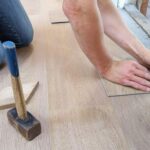Hey there! I’m Sam from Qualify Me!, Australia’s leading RPL (Recognition of Prior Learning) company. If you’ve been working in the construction industry for a while but don’t have formal qualifications, you’re probably already aware of how important a carpentry qualification can be in unlocking new opportunities.
Here at Qualify Me!, I’ve helped hundreds of people just like you turn their hard-earned skills into nationally recognised qualifications. Today, I want to talk about how getting your CPC30220 Certificate III in Carpentry can set you up for a successful career and how you can achieve this qualification quickly without going through years of training.
Why You Need a Carpentry Qualification
Let’s face it—Australia’s construction industry is booming, and qualified carpenters are in high demand. But without formal qualifications, you might be missing out on better pay, more jobs, and higher job security.
As I always say, “A formal qualification doesn’t just validate your skills—it opens doors to bigger and better projects.”
You might already have years of experience, but a nationally recognised carpentry qualification is what employers are looking for. It’s a must if you want to work on major construction sites or start your own carpentry business.
Fast-Track Your Carpentry Qualification with RPL
Here’s the good news: you don’t need to go back to TAFE or spend years in an apprenticeship to get qualified. With Recognition of Prior Learning (RPL), you can use the skills and experience you already have to fast-track your carpentry qualification.
At Qualify Me!, we’ve designed a streamlined process that’s quick and easy:
- Skills Assessment: We start with a free skills assessment to determine your eligibility.
- Portfolio of Evidence: You’ll gather proof of your experience (such as photos of your work, references, and certificates).
- Competency Check: We review your skills and ensure everything meets the standards.
- Get Qualified: Once everything’s in order, you’ll receive your nationally recognised carpentry qualification.
This process could save you years of formal training. And the best part? You’ll be ready to take on bigger roles and increase your earning potential.
"At Qualify Me!, we believe in turning your experience into qualifications fast, so you can keep moving forward in your career without slowing down."
The Skills You’ll Gain with a Carpentry Qualification
When you complete your carpentry qualification, you’ll gain a wide range of practical skills that are essential on any job site:
- Framing and formwork: You’ll learn how to construct the skeleton of buildings, which is a fundamental skill for any carpenter.
- Blueprint reading: Understanding how to read and interpret building plans is crucial for accurate construction.
- Building codes and safety regulations: You’ll be fully aware of Australia’s construction laws and ensure that every project meets safety standards.
These skills will make you stand out from the competition and give you the confidence to take on more complex projects.
Career Opportunities with a Carpentry Qualification
Once you’ve secured your CPC30220 Certificate III in Carpentry, you’ll have access to a wide range of job opportunities:
- Residential Carpenter: Work on homes, renovations, and extensions.
- Commercial Carpenter: Get involved in large-scale construction projects like office buildings, schools, or shopping centres.
- Formwork Carpenter: Specialise in creating the molds for concrete structures, an essential skill for infrastructure projects.
And if you’re thinking about starting your own carpentry business, a formal qualification is your golden ticket to get registered and insured as a contractor.
"With a carpentry qualification, you’re not just another tradie—you’re a skilled professional who’s ready to take on any job."
Frequently Asked Questions About Carpentry Qualifications
How long does it take to get a carpentry qualification through RPL?
The RPL process can be completed much faster than traditional training methods. At Qualify Me!, we typically see our clients qualify within a few months, depending on how quickly they can gather their evidence.
What is the CPC30220 Certificate III in Carpentry?
The CPC30220 Certificate III in Carpentry is the nationally recognised qualification for carpenters in Australia. It covers essential skills like framing, formwork, and blueprint reading.
Can I apply for RPL if I have informal carpentry experience?
Absolutely! Recognition of Prior Learning is designed for people who’ve gained their skills on the job, whether that’s through informal work or previous training.
Why should I get a carpentry qualification if I already have experience?
Without a formal qualification, you could be missing out on better job opportunities and higher pay. A carpentry qualification shows employers that your skills meet national standards and that you’re ready to take on more responsibility.
How does getting qualified through Qualify Me! help me locally?
As Australia’s leading RPL company, Qualify Me!, we specialise in helping local tradies fast-track their qualifications. This gives you an edge in your local job market, helping you stand out from the crowd and secure better contracts.
How to Get Started with Qualify Me!
Ready to take the next step? At Qualify Me!, we make the process as simple as possible. Whether you’ve been working as a carpenter for 2 years or 20, we can help you get your carpentry qualification fast. And if you’re looking for a local RPL company you can trust, you can always check out our Google reviews here.
"Getting your qualification shouldn’t slow you down. With Qualify Me!, it’s quick, easy, and tailored to your experience."
Conclusion
A carpentry qualification is the key to unlocking better job opportunities, higher pay, and more job security in Australia’s booming construction industry. With Qualify Me!, you can fast-track your certification and start enjoying the benefits of being a fully qualified carpenter.
After being in the industry for years your nerves probably tingle when you hear you need to sit an interview with the Consumer Business Services (CBS) to discuss your Building work supervisor knowledge. Before you read on, it's probably fair to point out that this article is for tradies apply for their trade contractors licence in South Australia only.
Well don't fret, with my little team here at Qualify Me! we've devised a short list for you to brush up on and calm your nerves. The interview itself is essentially an individual assessment of your knowledge and experience against a performance criteria that we will outline shortly. To be technical, this criteria is derived from the Building Work Contractors Regulations 2011. The assessment as you would expect is actually conducted by a person engaged by Consumer and Business Services.
There are 3 major sections to this interview, the first covers
1. Building Work Management,
2. Building Technology and
3. Legislation.
Below we've listed the performance criteria that you will be interviewed against. I would recommend that you answer each of these points in context of the building work that you are seeking a licence in.
it should be noted that a building work supervisor is NOT the same as independent building inspectors who perform building and pest inspections.
PART 1: Applying the principles of building work management in relation to the supervision of a building site
Planning and organising on-site building work:
- Translate building designs and specifications into operational requirements
- Develop strategies for implementing building operations
- Determine appropriate resources required including personnel, materials and equipment.
Determining the need for coordination and installation of temporary structures and facilities for building work:
- Determine the requirements for temporary structures and facilities
- Demonstrate a working knowledge of the most appropriate methods for provision of site facilities and preparation of detailed site layouts
- Coordinate the on-site approvals of temporary structures
- Arrange for and supervise the supply, erection, maintenance and removal of temporary structures and facilities
Preparing project schedules:
- Prepare schedules for building work.
- Update schedules
- Prepare reports on current status
- Assess the need for and select measures to overcome delays
Managing on-site building work:
- Supervise on-site operations.
- Administer subcontracts
- Administer progress claims
- Organise the supply and installation of materials and equipment
- Manage appropriate operational systems including occupational health and safety, accident and injury reporting, and industrial relations
- Plan, develop and oversee safe working systems for all site work
- Communicate effectively with personnel on and off the site
PART 2: Applying the principles of building technology to on-site building work
Applying the principles of building work practice:
- Select and apply building principles and methods including— (a) appraisal of site conditions; (b) erection and construction techniques; (c) sequencing of trades; (d) control of plant and equipment.
- Demonstrate a working knowledge of— (a) the use of basic measuring techniques; (b) the setting up and use of instruments to determine heights and levels; (c) demolition methods; (d) formwork design.
- Interpret plans and specifications.
- Produce simple working drawings suitable for on-site application
- Identify and select suitable materials
- Control the movement of materials on-site and their safe handling and storage
- Apply a basic understanding of— (a) properties and behaviours of structural materials; (b) sectional properties of structural elements; (c) structural load calculations; (d) performance of beams, columns and bracing; (e) utilisation of roof truss systems
- Apply the basic principles of estimating and demonstrate a working knowledge of take-off quantities for— (a) site works; (b) structure; (c) fit-out and finish
- Demonstrate a general knowledge of the process of the coordination of specialist services on-site.
PART 3: Applying a detailed knowledge of legislative requirements in respect of on-site building work
Applying the requirements of legislation, standards and codes relevant to on-site building work:
- Identify the range of legislation applying to building work.
- Apply the requirements of legislation and relevant standards and codes to the coordination and supervision of on-site building work.
- Understand the requirements of relevant legislation, standards and codes to the performance of residential, commercial and industrial building work.
Knowing your building classes is not essential, but why not brush up on it. They include the following:
Class 1 One or more buildings, which in association constitute
Class 1a A single dwelling being: (i) a detached house: or (ii) one of a group of two or more attached dwellings, each being a building, separated by a fire-resisting wall, including a row house, terrace house, town house or villa unit:
Class 1b (i) a boarding house, guest house, hostel or the like: (A) with a total area of all floors not exceeding 300m2 measured over the enclosing walls of the Class 1b; and (B) in which not more than 12 persons would ordinarily be resident, or (ii) 4 or more single dwelling located on one allotment and used for short-term holiday accommodation which are not located above or below another dwelling or another Class of building other than a private garage.
Class 2 A building containing 2 or more sole-occupancy units each being a separate dwelling
Class 3 A residential building, other than a building of Class 1 or 2, which is a common place of long term or transient living for a number of unrelated persons, including (a) a boarding-house, guest house, hostel, lodging-house or backpackers accommodation; or (b) a residential part of a hotel or motel; or (c) a residential part of a school; or (d) accommodation for the aged, children or people with disabilities; or (e) a residential part of health-care building which accommodates members of staff; or (f) a residential part of a detention centre.
Class 4 A dwelling in a building that is Class 5,6,7,8 or 9 if it is the only dwelling in the building
Class 5 An office building used for professional or commercial purposes, excluding buildings of Class 6,7,8 or 9
Class 6 A shop or other building for the sale of goods by retail or the supply of services direct to the public, including (a) an eating room, café, restaurant, milk or soft-drink bar; or (b) a dining room, bar area that is not an assembly building, shop or kiosk part of a hotel or motel; or (c) a hairdresser’s or barber’s shop, public laundry, or undertaker’s establishment; or (d) market or sale room, showroom, or service station.
Class 7a A building which is a car park.
Class 7b A building which is for storage, or display of goods or produce for sale by wholesale. Class 8 A laboratory, or a building in which a handicraft or process for production, assembling, altering, repairing, packing, finishing, or cleaning of goods or produce is carried on for trade, sale, or gain.
Class 9 A building of a public nature
Class 9A (a) a health-care building, including those parts of the building set aside as a laboratory; or
Class 9B (b) an assembly building, including a trade workshop, laboratory or the like in a primary or secondary school, but excluding any other parts of the building that are of another Class; or
Class 9C (c) an aged care building
Class 10 A non-habitable building or structure
Class 10A (a) a non-habitable building being a private garage, carport, shed, or the like; or
Class 10B (b) a structure being a fence, mast, antenna, retaining or free-standing wall, swimming pool, or the like; or
Class 10C (c) a private bushfire shelter.
Some other useful items to consider when preparing for your interview include:
Well I hope this was helpful, and get you on your way to passing your technical interview. If you have any more questions or would like more information leave us a comment below. If you need a particular qualification, be sure to check out our RPL Qualifications which can turn your trade skills into a Nationally Recognised Qualification in a matter of weeks.













